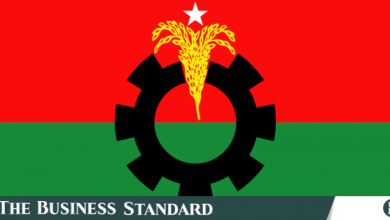Delisted firms must maintain 35% free-float shares for relisting


The Bangladesh Securities and Exchange Commission (BSEC) has mandated that over-the-counter (OTC) firms must maintain at least 35% of their shares as free-float in the market through a qualified investors offer (QIO).
This has been made mandatory for any firm planning to relist on the SME platform.
The firm must ensure that over one-third of its paid-up capital is in free-float shares.
If a company’s free-float shares are less than the regulator’s requirement, the company must raise capital by issuing fresh shares through the QIO, according to an order from the BSEC.
This means that 35% of the company’s total shares must be available for public trading instead of being held by insiders and major shareholders.
The move aims to improve liquidity and ensure broader public participation in trading these shares on the SME platform. The commission directed the stock exchange regarding this new requirement last week, based on stock exchange recommendations.
According to the new requirement, the transfer of ownership from existing sponsors and directors to the new board of shareholders must comply with BSEC’s September 2021 notification and other relevant securities laws.
Any OTC company that has raised or plans to raise equity capital by issuing new shares or Share Money Deposits must obtain BSEC’s permission.
To list on the SME platform, OTC companies must ensure that 35% of their shares are in free float. This can be achieved through a QIO or any other method approved by the commission, following securities laws.
Companies that have not raised or will not raise capital through any method may list on the SME platform of stock exchanges through the re-listing process, provided they ensure 35% free float shares and comply with applicable securities laws.
To facilitate this, the Small Capital Company Rules 2022 and Stock Exchange Listing of SME Regulation need to be amended.
Issuer companies must ensure the proper utilisation of raised funds or capital through share issues, QIO offers, and share money deposits. The funds should be used specifically for resuming operations, reopening factories, and settling bank liabilities, according to the conditions.
A BSEC official, seeking anonymity, said the commission observed that most companies which want to be listed on the SME platform do not have a sufficient portion of free-float shares. Some companies already listed on the SME platform also lack available free-float shares, the official added.
Now, the commission believes that increasing the availability of free-float shares will boost participation and trade volume on the SME board.
Recently, Al-Amin Chemical Industries, a chemical products manufacturer, received BSEC consent to increase its paid-up capital from Tk5 crore to Tk30 crore.
According to the Dhaka Stock Exchange (DSE) website, sponsors and directors hold 81% of the company’s shares, while the rest are held by institutions and general shareholders.
As per the new condition, the company has to ensure a 35% share in free float before listing on the SME board.
Besides, Excelsior Shoes, Dhaka Fisheries, Padma Printers, Gachi Hata Aquaculture, Rangamati Food Products, Jago Corporation, and Perfume Chemical Industries also want to be listed on the SME Board and have to comply with the new rules.
In September 2021, the DSE launched its SME platform by trading shares of six companies, four of which were from the OTC market – Apex Weaving and Finishing Mills, Bengal Biscuits, Himadri Ltd, and Wonderland Toys Ltd.
Currently, 20 companies are trading on the SME platform of the DSE. Only eligible investors with at least Tk30 lakh investment in the secondary market can trade on this platform.
Yesterday, the SME index of DSE rose 27 points, settling at 1498, with the SME board turnover standing at Tk22 crore, up from Tk9 crore in the previous session.
The DSE launched its OTC platform in October 2009 with 51 companies, later adding 29 more. The companies were ousted from the main board to the OTC because of their underperformance or non-performance in business, failure to hold shareholders’ annual general meetings over the years, and for converting their shares into electronic ones instead of paper certificates.
In 2021, BSEC abolished the OTC platform by issuing a directive in this regard. Around two dozen companies were supposed to shift to the SME platform, 29 firms to exit from the market and 18 companies were supposed to shift to the Alternative Trading Board of the DSE.




